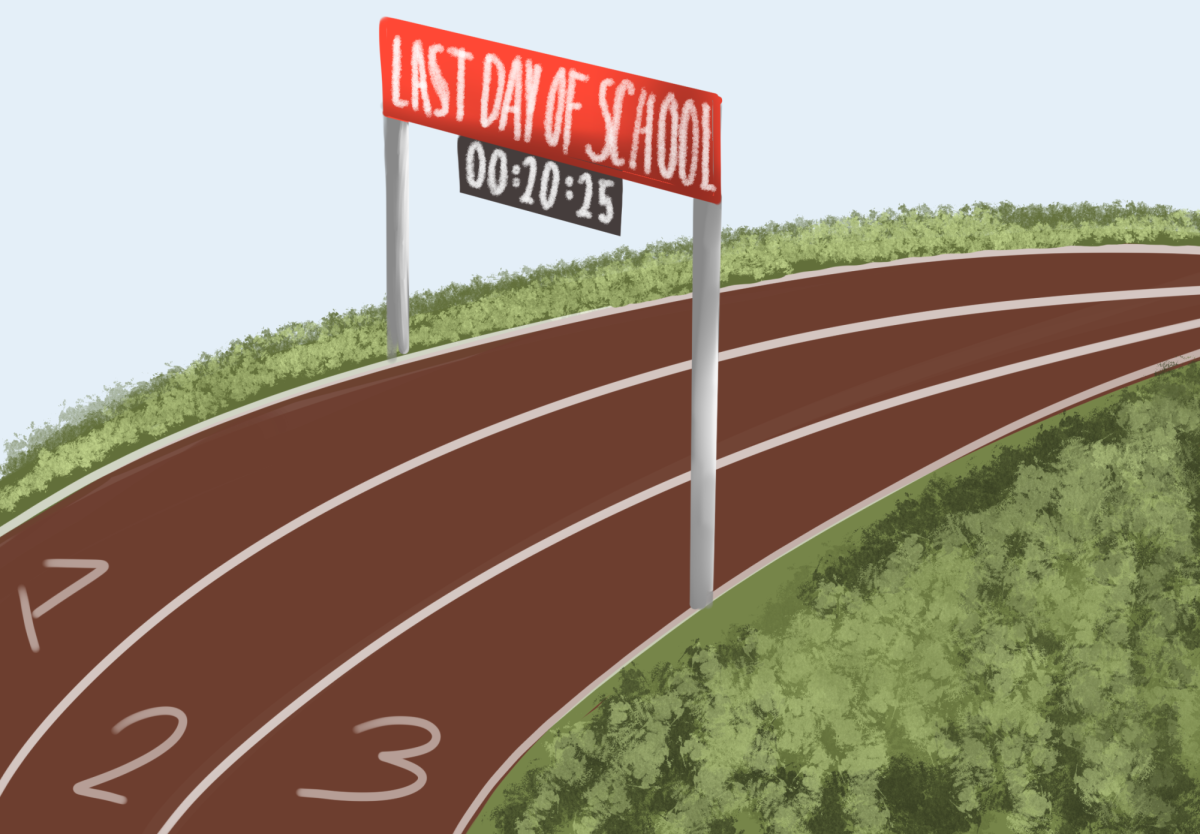Should a single grade define whether a student is capable of taking a challenging course? At Loomis Chaffee, students must meet certain grade requirements to enroll in advanced or college level courses. This policy is designed to ensure that students are academically prepared for the intense and demanding workload the advanced courses require.
“On an annual basis, each department reasserts or redetermines grade thresholds for placement decisions, whether at the course level or across the department, based upon demonstrated results of the prior years’ students,” Mr. Tim Lawrence, Dean of Academics and Curriculum, explained regarding the establishment of the requirements.
Some members of the LC student body support the prerequisite grade requirement system, but others think that it may not be the best way to measure true potential academically. While grade requirements are necessary to ensure that students don’t find themselves failing out of classes they can't handle, many believe that the school and administration should be more flexible with students who want to take more advanced classes and push themselves.
“I do think they could be more lenient with the grades that they do allow going into college level or advanced classes… People have had [grades] right below the average that you need, but they're not allowed to take the advanced courses [unless they seek special permission], which [can feel discouraging],” said Morgan Touhy ’27.
While grade requirements are placed to ensure students’ readiness for certain classes, they may not represent a student's individual growth or effort. For example, if a student struggled earlier in the year on a certain unit but later improved, strict adherence to prerequisite grade requirements could prohibit them from taking a class that they may be ready for, thereby limiting the depth of their curricular potential at Loomis. A more flexible approach would allow teacher recommendations to override grade requirements in certain cases. If a student is highly engaged and willing to put in the work and time, their teacher could attest to their ability to succeed in an advanced or college level course.
Under current policies, however, teachers cannot directly place such students in more advanced classes; instead, they must undergo a formal review process: course appeals. This procedure was designed for students who are denied enrollment to an advanced class yet are confident about their ability to succeed in it.
“Each year when placement determinations are made… and published to student, parent, and advisor portals, then begins the month-long appeals process,” said Mr. Lawrence. “By May 1 students may request reconsideration by the department, often including in this appeal a description of progress made, particular challenges overcome, great interest in the content, and demonstrated commitment. The teacher is then able to confer with the department head and consider that appeal with both the student’s statement of interest and current grades at the fore.”
“We do have students make successful appeals every year,” Mr. Lawrence added.
Despite these exceptions, grade requirements generally serve an important role in maintaining academic standards and ensuring student success. At Loomis, college level and advanced courses demand a lot of time, energy and effort. Some students cannot handle such strenuous workload despite their optimistic self-evaluations, as more difficult classes require higher expectations and heavier workloads. Grade requirements also serve as a tool to help students reach for a higher grade if they want to take a certain course.
“Yes, I think grade requirements are important and necessary, as they allow students to set certain goals and expectations,” said Catherine Forte ’27. When students know they need to earn a certain grade to qualify for an advanced or college level course, they may become more proactive and motivated: putting in extra effort, seeking help when needed, and staying more focused in class.
The requirements also help students gauge if they can handle an advanced class or if a regular class would be a better option.
“I think they are necessary so students can measure their ability in the course they are taking then which then sets them up for how they are gonna do in the course the next year,” said Morgan Touhy ’27.
Indeed, the Academic Office established grade requirements with this very intent. “[These] guidelines work well in informing students of expectations and likely demand, so that they with families and advisors can make requests for both individual courses and a total course load from that awareness,” Mr. Lawrence said. “It also allows the department to maintain consistent and fair placement processes.”
While a prerequisite grade requirement policy helps prepare students for challenging coursework and motivates them to strive for higher achievement, Loomis may explore room for more flexibility by rendering the appeals process into a less formal procedure, especially considering the various cases where reaching for the more advanced course may enhance a student’s overall academic career.
Categories:
Should Grade Requirements for Classes Be Lifted?
Mady Heneghan ’27, Contributor
May 17, 2025
More to Discover






